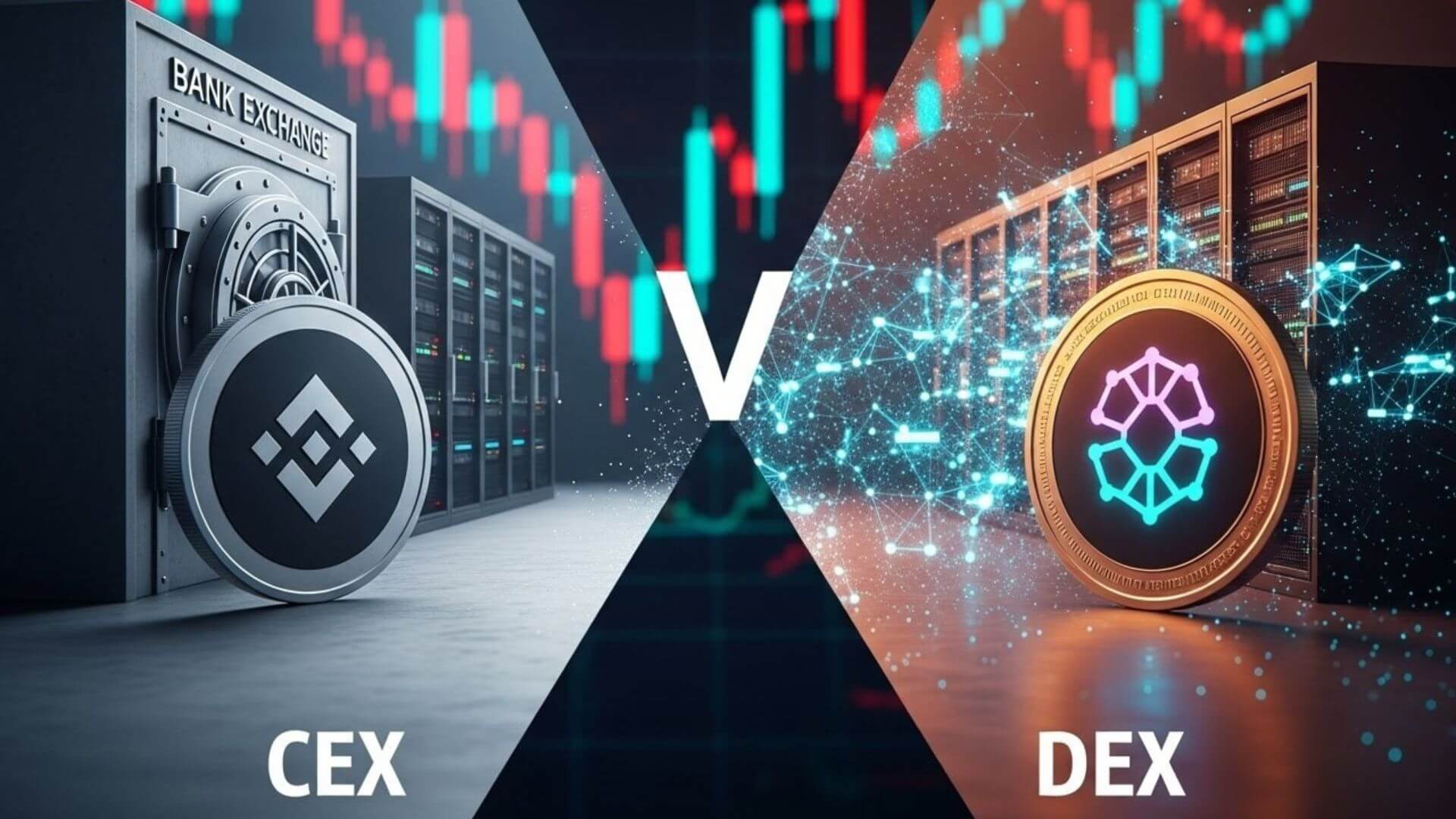Appearance
DEX vs CEX: What's the Difference in Crypto Trading?

When you decide to start crypto trading, one of the first questions you'll face is where to do it. The two main options are a CEX (Centralized Exchange) and a DEX (Decentralized Exchange). While both allow for crypto trading, they work in fundamentally different ways. A CEX operates like a traditional company, whereas a DEX is built directly on a blockchain. Understanding the difference between a DEX and a CEX is crucial for anyone involved in crypto trading on the blockchain.
What is a CEX (Centralized Exchange)?
A CEX, or Centralized Exchange, is a company that acts as a middleman for your crypto trading. Think of a CEX like a bank for your crypto. You deposit your funds into an account on the CEX platform, and the company takes care of matching buyers and sellers. Popular examples include Coinbase and Binance.
When you perform crypto trading on a CEX, you are not directly interacting with the blockchain. Instead, you are trading within the company's private database. This makes the crypto trading process very fast and easy. However, it means you are trusting the CEX to keep your funds safe. A CEX is often the starting point for newcomers to crypto trading, but it is different from a DEX, which uses the blockchain directly.
What is a DEX (Decentralized Exchange)?
A DEX, or Decentralized Exchange, is a platform that allows for peer-to-peer crypto trading directly from your own wallet. There is no middleman company. Instead, a DEX is a piece of software made of smart contracts that run on a blockchain, like Ethereum. Uniswap and PancakeSwap are famous examples of a DEX.
With a DEX, you are always in control of your crypto because it never leaves your wallet until a trade is executed. All crypto trading activity on a DEX is recorded publicly on the blockchain. This approach to crypto trading is very different from a CEX. Using a DEX is a pure form of blockchain-based crypto trading.
What are the main differences in crypto trading on a DEX vs CEX?
The choice between a DEX and a CEX for your crypto trading comes down to a series of trade-offs. The technology of a DEX leverages the blockchain in a way a CEX does not.
Custody (Who Holds Your Crypto?):
- CEX: The CEX holds your crypto in its wallets. This is convenient but risky. If the CEX gets hacked, you could lose your funds.
- DEX: You hold your own crypto in your personal wallet. This is more secure from hacks on a central company, but you are fully responsible for your wallet's security.
Permission (Who Can Join?):
- CEX: You need to create an account and verify your identity (KYC - Know Your Customer). A CEX can freeze your account.
- DEX: Anyone with a crypto wallet can use a DEX. There are no sign-ups or permissions needed for this type of crypto trading on the blockchain.
Technology:
- CEX: Uses an "order book" system on a private server. This makes crypto trading fast and cheap.
- DEX: Uses smart contracts and liquidity pools on a public blockchain. This makes crypto trading more transparent but can be slower and more expensive due to gas fees on the blockchain.
Choosing a DEX or a CEX will fundamentally change your crypto trading experience.
Which one is better for my crypto trading?
There is no single "best" option; it depends on your priorities. The choice between a CEX and a DEX is personal.
Choose a CEX for your crypto trading if:
- You are a beginner and want an easy, user-friendly experience.
- You want fast crypto trading with low fees.
- You want the ability to trade fiat money (like USD) for crypto.
- You are comfortable trusting a company with your funds.
Choose a DEX for your crypto trading if:
- You prioritize control and self-custody of your crypto.
- You want to maintain your privacy and anonymity.
- You want to access new or niche tokens not available on a CEX.
- You are comfortable managing your own wallet and interacting directly with the blockchain.
Ultimately, many people use both a CEX and a DEX for their different crypto trading needs. A CEX is an on-ramp, while a DEX is a gateway to the wider world of decentralized finance on the blockchain.